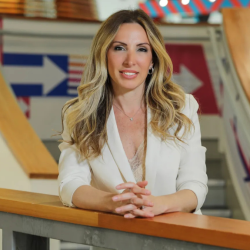I spent much of my early career as a planner in advertising…
Planning on how to target audiences with relevant messaging for brands that would effectively drive or change behaviour. Over time, I applied my modest planning skillset to leadership roles at independent, listed and private equity backed companies.
I’ve learnt that plans are undoubtedly important in terms of vision and articulating a way of achieving goals, uniting teams, and avoiding ‘rudderlessness’. Plans provide frameworks, so that even if you’re deviating, you know you’re deviating. Planning and making plans have been a big part of my professional life.
But it was Mike Tyson who said that everyone has a plan until they get punched in the face. And as a business leader over recent years, it’s fair to say that most businesses have been metaphorically, and repeatedly punched in the face. Brexit, pandemic, war in Ukraine, cost of living crisis are just some of recent macro-economic, geopolitical and global health crises that have highlighted how ‘change’ is the only constant. If ever there was an era where plans could be called into question, the last decade might be it.
But of course, change isn’t a twenty first century concept. A quick revisit of Toffler’s 1970 classic Future Shock highlights the existential challenge he felt back then:
“To survive, to avert what we have termed future shock, the individual must become infinitely more adaptable and capable than ever before. He must search out totally new ways to anchor himself…” (sic)
And in our era of crisis management, business objectives may have remained the same, but plans will have had to change. So my perspective is shaped by something we believed at the late great HHCL — plans should be ‘strong opinions, softly held’. A firm view and direction coupled with the ability to shift, evolve and adapt ,without obstinately adhering to outmoded thinking.
My fear with plans…
… is that they constrain thinking and resolutely blinker from what I would describe as ‘happy accidents’ – where serendipity, timing, aptitude, and open mindedness collide to enable successful deviation from a set path, in order to capitalise on unforeseen opportunities. And happy accidents exist in all areas of professional life, including careers, business propositions and acquisitions.
My career has been defined by several ‘right place right time’ happy accidents, that led to a change of course. It’s OK to have a ‘ten-year career plan’ (although I’m not a fan), but rigorously adhering to a plan can prevent consideration of left-field opportunities or account for unforeseen challenges. I’d never have ended up in my current role if it hadn’t been for a series of happy accidents — as a graduate, as a planner and as a business leader.
In business, plans don’t always encourage entrepreneurialism and experimentation, where proposition happy accidents emerge from unexpected places. In recent years the development of my company’s successful and growing employee engagement and learning consultancies evolved in part thanks to a plan, but with a good dose of happy accident.
Acquisitions are a key part of growth and planning for additive capabilities is key to shaping thinking. However, right people, right time, right capabilities requires some considerable alignment of stars for successful collaborations and sustainable growth.
Ultimately, plans are powerful, integral business tools — thousands of successful businesses can’t be wrong. But in the face of extraneous factors, they must be accompanied by the ability to spot and embrace happy accidents, so that agility and acumen, complement rigour and control.
Featured image: Johann Walter Bantz / Unsplash

































